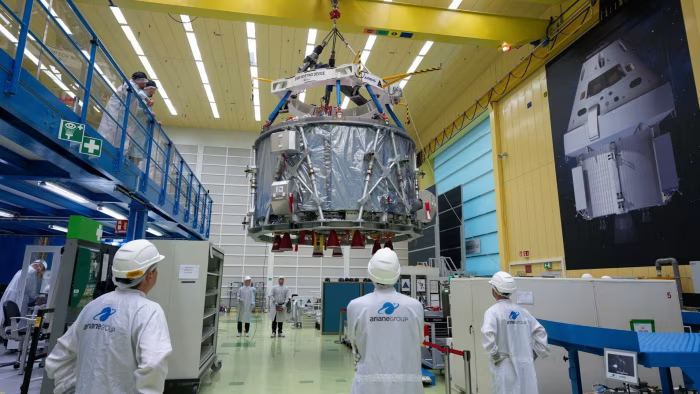Boeing and Union Workers Reach Agreement to End Strike and Resume Production

After a seven-week strike that heavily impacted Boeing’s finances and halted much of its jet production, unionized workers voted to approve a new contract, ending the standoff.
With 59% of the vote in favor, the deal includes a 38% pay raise over four years, providing a significant gain for the machinists and marking the end of Boeing’s first major labor disruption in 16 years.
The International Association of Machinists and Aerospace Workers (IAM), representing over 33,000 employees across the West Coast, confirmed the new contract on Monday. The approval allows Boeing to resume production on aircraft models like the 737 MAX, 767, and 777, which were paused due to the strike. Boeing’s shares responded positively, rising nearly 2% in pre-market trading on Tuesday.
Union leaders, including lead negotiator Jon Holden, acknowledged the significance of the vote, calling it “a victory,” while also noting some mixed feelings among workers. Holden acknowledged that not everyone was fully satisfied, given the absence of the traditional pension restoration. However, union members did secure improved company contributions to 401(k) retirement plans, a guaranteed bonus, and a commitment from Boeing to build future aircraft in the Seattle area.
The strike had serious financial implications for Boeing, costing an estimated $100 million per day in lost revenue, according to industry analysts. To counteract the financial toll, Boeing recently raised $24 billion from investors. The new contract, which includes a $12,000 ratification bonus for each union member, is expected to increase Boeing’s wage costs by $1.1 billion over the contract’s duration.
Restarting production at full capacity may take time as Boeing ramps up its operations. Some workers, having been away from the factory floor for weeks, will require retraining. The initial pace of production for the 737 MAX is expected to be slower, potentially only a single-digit monthly output, significantly less than the pre-strike target of 38 per month.
Reactions among union members varied. While many welcomed the pay increase and improved job security, some voiced disappointment that not all demands were met. Thomas Amilowski, a long-time worker who voted against the contract, described the deal as insufficient in addressing years of stagnant wages and rising living costs.
President Joe Biden and Acting Labor Secretary Julie Su, who were actively involved in facilitating negotiations, praised the agreement. Biden, a vocal supporter of unions, called the outcome a testament to the effectiveness of collective bargaining. Washington Governor Jay Inslee echoed this sentiment, acknowledging the aerospace workers’ contributions to the state’s economy.
The strike’s conclusion provides Boeing with much-needed relief after a difficult year, marked by leadership changes, federal investigations, and operational setbacks. Boeing’s new CEO Kelly Ortberg, appointed in August, expressed optimism, noting that the focus is now on restoring production efficiency and rebuilding trust with the workforce.
With the strike officially over, Boeing workers are set to return on Wednesday, November 6.







